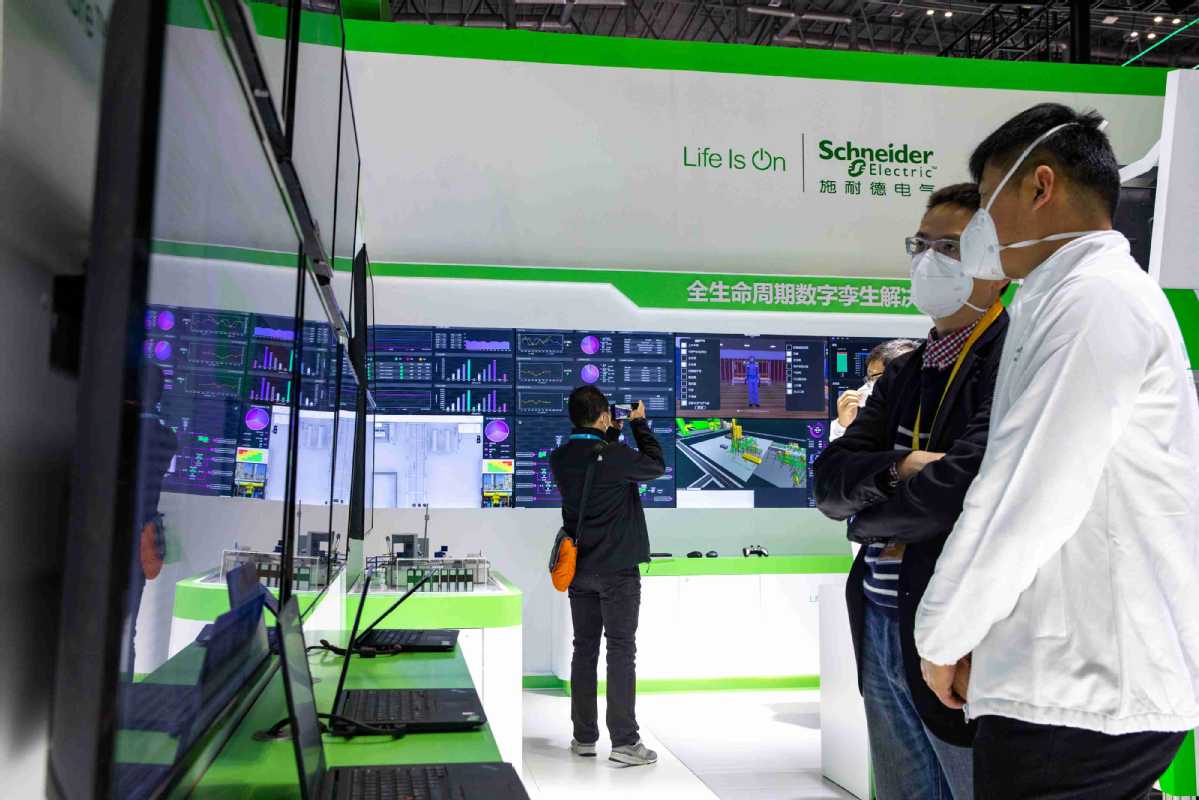
By Greg Gao
(JW Insights) June 2 -- Schneider Electric SE, a leading energy management multinational company, is set to increase its focus on electrification and digitalization ventures in China as the country enters a new era of green and innovation-led growth, reported China Daily on June 2.

Chris Leong, chief marketing officer and member of the group's executive committee, said, “China's focus on digitalization and sustainability with an economic return is complementary to Schneider Electric's growth strategy.”
With Schneider Electric's expertise in energy management and automation, its "electrification plus digitalization equals sustainability "formula and solutions can contribute greatly to China's industry upgrade and dual carbon goals — reaching a carbon dioxide emissions peak by 2030 and achieving carbon neutrality by 2060, said Leong.
The company has assisted the industrial park in the Lingang Special Area of China (Shanghai) Pilot Free Trade Zone in achieving active energy management, access to renewable energy and improved operational efficiency with lower carbon emissions.
Supported by advanced solutions, the park is able to cut 60 percent of its monthly energy costs and expects to save 1.1 million kWh of electricity annually, accelerating its transformation toward a green and low-carbon industrial park.
As many users may be concerned about their return on investment, Leong said that the average investment payback period, based on Schneider Electric's experience, is around three to four years.
Operating in China for 36 years, Schneider Electric has grown from a joint venture factory to one with 22 factories, seven distribution centers and five research and development centers across the country, with a more than 90 percent local purchase rate. China has become the French company's second-largest market worldwide, said China Daily.
Highlighting China's massive market, sophisticated industrial system, strong supply chain competitiveness and improved business environment, Leong said the group will continue to increase its expenditure in the country to strengthen its "China Hub" which comprises talent, innovation, supply chains and an ecosystem.
For example, after opening an automation R&D center in Wuxi, eastern China’s Jiangsu Province in March of this year, Schneider Electric currently operates five innovation centers with over 2,000 engineers across China, one of which focuses on software development to help the company maintain and reinforce its competitiveness.
Despite the cautious global attitude toward foreign direct investment, China is expected to become more attractive to foreign companies this year due to its wider opening-up policies and anticipated economic rebound, said Wei Jianguo, vice-chairman of the China Center for International Economic Exchanges.
China's actual use of FDI grew by 2.2 percent year-on-year to RMB499.46 billion($70.2 billion) in the first four months of 2023, data from the Ministry of Commerce showed, according to the report from China Daily.








